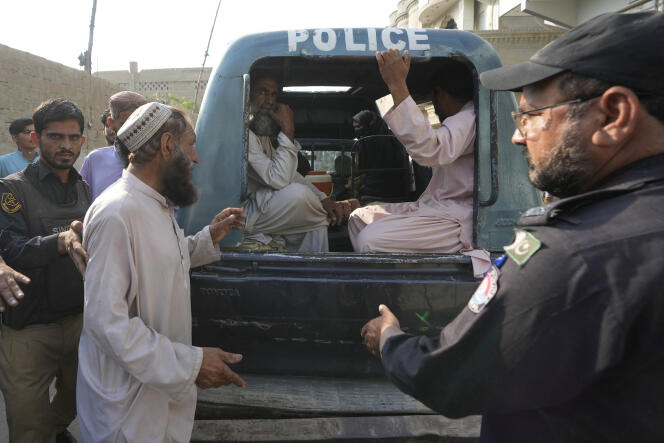


At the crack of dawn on Wednesday, November 1, Mohammad Asif rushed to a school in Al-Asif Square, located in Sohrab Goth, a Karachi suburb that is home to many Afghans. The father of six looked completely distraught, despite being born here. He doesn't have the documentation required by the authorities to stay in Pakistan. His father emigrated here in 1981 before returning in 2001. Asif, on the other hand, had been enlisted in the security forces until the return of the Taliban in August 2021, when he was shot in the legs and arm. He has an official document confirming his employment but he still lacks a residence permit. "If I go back to Afghanistan, the Taliban will persecute me," he said.
The day before, the police announced over loudspeakers in every Afghan neighborhood of Karachi that undocumented migrants would be arrested by midnight on November 1, placed in detention centers and then deported. On October 3, Islamabad abruptly decided to get rid of "illegal" foreign citizens – mostly refugees from neighboring Afghanistan – who have come in successive waves through the wars, from the invasion of the Soviet Union in 1979 to the return of the Taliban in August 2021. Millions of men, women and children were taken in but never naturalized. The government estimates that of the 4 million Afghans living in Pakistan, 1.7 million are undocumented. Over 600,000 crossed the border in August 2021 alone, making Pakistan one of the world's leading refugee-receiving countries.
The ultimatum expired on October 31, and 49 detention centers opened across the country, including two in Karachi, Pakistan's economic capital and largest city with a population of 20 million.
Like Asif, hundreds of Afghans flocked to the Al-Asif Square school to try and regularize their situation. All day long, men who could write filled out forms for the illiterate. Many of the refugees have residence cards, but these expired in June due to the authorities' failure to renew them. Community leader Haji Abdullah Bukhari negotiated with local officials to give them a day's reprieve to apply for renewal.
Syed Mustafa, 62, teaches at the school. In 1981, he was a medical student in Kabul when the war began. With his family, he headed for Qatar, then Pakistan. He has now lived in Karachi for four decades. "We've lived in fear of being sent back since the first day we arrived. We have nothing left in Afghanistan, no family, no property and no connection with society. We are strangers now in our own country. The only option for us is to continue living in Pakistan."
You have 60% of this article left to read. The rest is for subscribers only.
